Lists
by Powell's Books, March 1, 2019 9:17 AM
This year we want to draw your attention to women memoirists writing from the margins of American society. Whether they are transgender, sex workers, refugees, POC, disabled, poor, or Native — and most often a complex amalgam of several marginalized identities — the authors below have no scruples about communicating their lives’ joys and hardships. Radical stories from radical women, the following books challenge traditional narrative structures, eschew pat endings, play with veracity, and force the reader to reckon with the actual span of human diversity and behavior.
÷ ÷ ÷
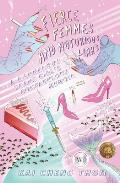 Fierce Femmes and Notorious Liars
by Kai Cheng Thom
Fierce Femmes and Notorious Liars
by Kai Cheng Thom
“Author Kai Cheng Thom has a problem with the easily consumable trans narratives that cis people love so much, wherein trans people suffer through the trials and tribulations society inflicts like angelic sacrificial lambs. In her stunning Fierce Femmes and Notorious Liars, she delivers us the cure. It's a memoir/not-memoir, featuring pantheons of trans goddesses as deeply complex as they are beautiful, knife fights in the name of fallen sisters, and love stories without a single cliché. This gorgeous collection of words should be a queer classic, and has earned a permanent spot on my nightstand in the company of other sacred texts.” — Cosima C.
Fierce Femmes uses the fantastic — myths and fairy tales —to explore the diversity and power of trans women’s voices. In her Plenitude review, critic Gwen Benaway notes that Fierce Femmes’s fairy tale setting “allows for different access points into subject matter which could be painful without the glaze of wonder over them.” The “confabulous” narrative form also reckons with the innately suspect nature of memoir and, as Cosima observes above, subverts the traditional trans narrative, which is often written to heteronormalize transgender individuals and assuage cisgender fear. More powerful and somehow truer than a straightforward autobiographical recounting, Fierce Femmes showcases the love, imagination, dynamism, and audacity inherent in asserting one’s true self in a transphobic world.
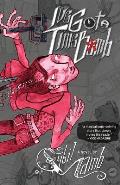 I've Got a Time Bomb
by Sybil Lamb
I've Got a Time Bomb
by Sybil Lamb
This kicking-and-screaming autobiographical novel defies easy description. In I’ve Got a Time Bomb, the author Sybil Lamb uses her real-life experience of traumatic brain injury from a hate-based assault to play with the character Sybil’s perception of time and memory, and to paint a vivid picture of what it means to live outside of the care and order of society and government, not necessarily voluntarily, but because one’s body and identity are rejected. It also provides a multifaceted and often upsetting portrait of the partnerships and small groups that form on the edges of society. I’ve Got a Time Bomb is revelatory, unsettling, and well worth reading.
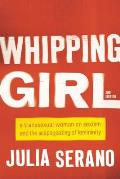 Whipping Girl
by Julia Serano
Whipping Girl
by Julia Serano
A fusion of memoir and intersectional feminist theory, Whipping Girl is a classic in the still developing canon of gender studies. Whipping Girl explores many of the topics you’d expect — the ways society at large and modern feminism in particular fail trans women, sensationalism in the media, the psychological process of transitioning — but it really shines in Serano’s argument that we can use the negative ways trans women are perceived as a lens through which to study how pervasive masculine attitudes remain in our society, even within feminism.
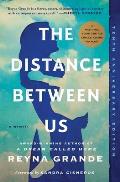 The Distance Between Us
by Reyna Grande
The Distance Between Us
by Reyna Grande
Award-winning novelist Reyna Grande crossed the border from Mexico into the U.S. illegally at age nine, to join her father (from whom she’d been separated for several years). A hopeful book that culminates with Grande’s acceptance to college, The Distance Between Us is also in many ways a distressing story of family separation, poverty, despair, and parental abuse that has only increased in power and relevancy under the current administration. In a starred review, Publishers Weekly notes, “Recounting her story without self-pity, [Grande] gracefully chronicles the painful results of a family shattered by repeated separations and traumas.” A beautifully written and timely work.
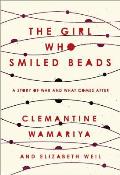 The Girl Who Smiled Beads
by Clemantine Wamariya and Elizabeth Weil
The Girl Who Smiled Beads
by Clemantine Wamariya and Elizabeth Weil
“In the most important way, this book was hard to read and harder still to put down. Clemantine Wamariya’s voice is strong, sure, and unafraid to be vulnerable, angry, flawed, and human. This is not a feel-good, rags-to-riches refugee story; nor does it sensationalize the horrors that Clemantine and her sister (and so many others) experienced. Instead, we are granted the incredible gift of sitting beside Wamariya as she constructs and claims the narrative of her experience, and figures out how it fits into the larger narrative of how we treat our fellow humans.” —Madeline S.
In The Girl Who Smiled Beads Wamariya tells of escaping the Rwandan genocide at age six with only her older sister in tow, and of their subsequent years wandering parentless between refugee camps in different countries before landing in Chicago. The Girl is a harrowing memoir, eschewing a Hollywood retelling of the author’s many successes to explore instead how childhood trauma and displacement continue to impact Wamariya’s understanding of the world and her roles within it.
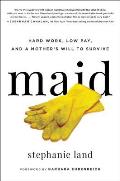 Maid
by Stephanie Land
Maid
by Stephanie Land
“Maid, Stephanie Land’s clear-eyed explanation of just how difficult it is to get by while cleaning strangers’ houses, is standing on the shoulders of Barbara Ehrenreich’s now classic Nickel and Dimed. In fact, Ehrenreich wrote the foreword. Where Maid exceeds its predecessor is in the fullness of the lived-experience portrait it paints. Just as poverty is often passed on generationally, so is emotional abuse. Land’s efforts to break both cycles for her daughter are truly moving.” — Keith M.
Maid has received a ton of attention since it was published earlier this year. Part of that can be ascribed to Americans’ post-2016 interest in the lives of the white working class (much of that fueled by Hillbilly Elegy), but it’s really Land’s writing chops and her urgent analysis of the stigmas against the working poor, particularly single mothers, that deserve the credit for holding readers’ attention.
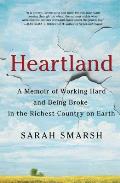 Heartland
by Sarah Smarsh
Heartland
by Sarah Smarsh
“Sarah Smarsh's Heartland is a poetic, unusual memoir; her story, and the story of her family and her town, provide an illuminating lens through which to view some of the challenges of making a living in rural America, and the near-impossibility of moving up into the middle class for those born into poverty. Heartland is a powerful, lyrical book.” — Moses M.
Like Maid, Heartland focuses on the working poor, in this case those living in Midwestern rural poverty. Smarsh grew up in a Kansas farm family, several generations deep in poverty despite working long hours in often physically demanding and dangerous jobs. Smarsh details how poverty makes families itinerant, and how this compromises children’s abilities to complete their education and increases the likelihood of divorce, abuse, and teen pregnancy. She also pays significant attention to the indignities poor people submit to in exchange for basic assistance (one reason, Smarsh suggests, that they tend to vote against liberals), and the rural-urban divide, both how wealthy urbanites fetishize the rural experience and the ways natural and human resources are tapped to meet the demands of urban populations. For all its sociopolitical weight, however, Heartland is rooted in Smarsh’s beautifully detailed descriptions of rural Kansas and her family’s history; it’s a thoughtful, revealing memoir that will change your understanding of flyover country.
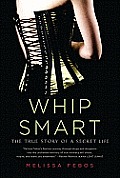 Whip Smart
by Melissa Febos
Whip Smart
by Melissa Febos
If you’re looking for S&M titillation, try Anne Rice. But if you’re willing to go down a rabbit hole of addiction, compulsions, and sexual scenarios that can be little more “ew” than “ooh,” Febos’s arresting account of working as a Manhattan dominatrix while studying at The New School explores the interrelationships of drug and sex addiction and sexual and social power in self-critical, bracing prose.
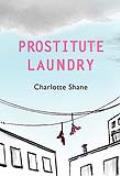 Prostitute Laundry
by Charlotte Shane
Prostitute Laundry
by Charlotte Shane
Shane is a vivid, smart writer, very good at parsing through both her own complicated relationships to her clients and what it means more broadly to commodify sex and to participate in your own commodification. Prostitute Laundry began as a series of letters, which lends the collection a quirky serial, zine quality and accounts for some longish sections on love that will either fully satisfy your desire for emotional gushing or bore you. Either way, Prostitute Laundry is candid and self-reflective enough to merit reading, and Shane’s manipulation of events to create a satisfying narrative arc raises fascinating questions about whether truth in memoir is a product of fact or emotional transparency.
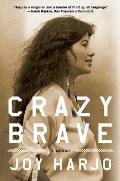 Crazy Brave
by Joy Harjo
Crazy Brave
by Joy Harjo
Joy Harjo (Muscogee (Creek) Nation) is a critically acclaimed poet and musician whose riveting memoir, Crazy Brave, traces her path from a traumatic childhood in Oklahoma through art school, teen pregnancy, failed early marriages, and, as struggling young mother, the life-saving appearance of poetry. Many of Harjo’s accounts are terrible — alcoholism and physical abuse reign large — but she has a remarkable gift for survival, and the optimism she finds in her many artistic pursuits lightens this difficult and beautiful book.
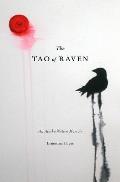 The Tao of Raven
by Ernestine Hayes
The Tao of Raven
by Ernestine Hayes
In The Tao of Raven, Hayes (Tlingit) continues the story of exile and return begun in Blonde Indian, this time as a grandmother and late-in-life academic worried about the survival of her Native Alaskan community. A creative fusion of Tlingit spirituality, Native Alaskan history, and memoir, The Tao of Raven is unique in its ability to contextualize an individual's and a community’s traumatic history within the grander network of ancestry, nature, and the supernatural that comprise the Tlingit worldview. By turns anxious, contemplative, angry, and expansive, Hayes’s The Tao of Raven is a lovely, thought-provoking examination of the Tlingit past, present, and future.
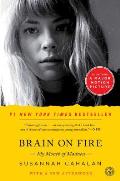 Brain on Fire
by Susannah Cahalan
Brain on Fire
by Susannah Cahalan
NPR called Brain on Fire an “anti-memoir,” due to Cahalan’s meticulous reconstruction of the month she lost her mind to NMDA receptor encephalitis, a rare auto-immune disorder that attacks the brain. Cahalan has no memory of her experience, relying instead on accounts from doctors, friends, family, and hospital surveillance videos, and her own journalistic prowess, to determine just who she became in those weeks, and how that self irrevocably altered who she would be going forward.
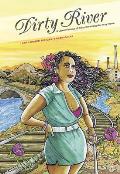 Dirty River
by Leah Lakshmi Piepzna-Samarasinha
Dirty River
by Leah Lakshmi Piepzna-Samarasinha
Poet Piepzna-Samarasinha calls Dirty River a “transformative justice abuse survivor narrative,” a product of trying to process her experiences as a queer, disabled person of color who is a survivor of incest and the intergenerational cycles of poverty, racism, colonialism, and ableism that continue to impact her family. If that sounds heavy and full of “isms,” it is; Dirty River is as much a history of the nascent punk and queer activism movements in Toronto as it is about Piepzna-Samarasinha’s childhood and decision to run away from home. It’s also a lyrical work that surprises the reader with momentary digressions into prose poetry. Piepzna-Samarasinha’s take on living with a disability is both confrontational and deeply accepting —a worthwhile read for anyone interested in intersectional gender and body studies, and a must-read for fans of Lidia Yuknavitch, Eli Clare, and Kai Cheng Thom (see above).
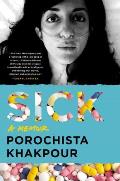 Sick
by Porochista Khakpour
Sick
by Porochista Khakpour
Porochista Khakpour’s Sick is about living with late-stage Lyme disease, a misunderstood and controversial illness, and how her experiences of chronic sickness — finding a name for her disease, self-medicating, self-doubting, adjusting to a difficult diagnosis — are impacted by the twin difficulties of being a female patient and a woman of color. There are plenty of medical memoirs, but what makes Sick stand out is Khakpour’s self-positioning as an unreliable narrator. How much of her sickness is physical, how much psychological? How much of it is self-imposed? Khakpour’s refusal to valorize herself or write a vindication memoir throws the reader into the same state of unease and confusion as the author, a bold narrative move that paradoxically increases the reader’s empathy and heightens their skepticism.
See also:
The Literary Women Who Inspire Us
Oregon's Women-Run Small Presses
|